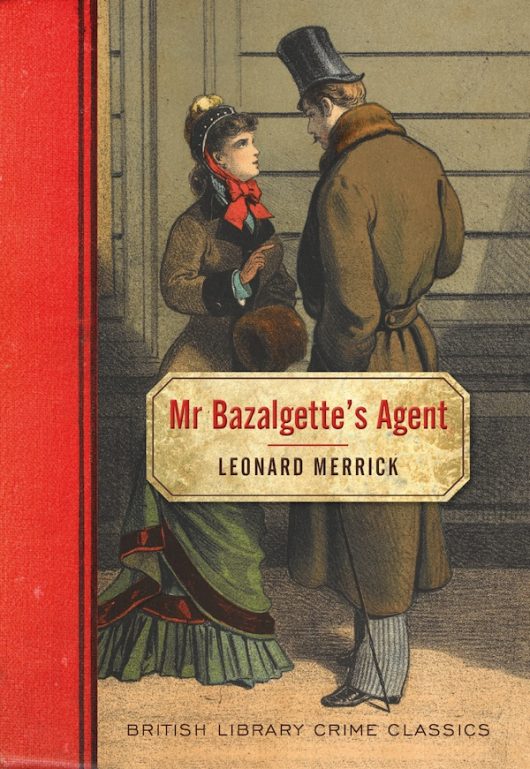The British Library’s dedication to publishing new editions of lost and forgotten crime fiction is an affirmation of the genre’s importance to the UK’s literary heritage. Mr Bazalgette’s Agent, originally published in 1888, is a concise, captivating novel written in diary form that arrives in a handsome new edition with a bold literary claim – that of being the first British novel to feature a female detective. It follows British Library editions of The Female Detective (1864) by Andrew Forrester and Revelations of a Lady Detective (also 1864) by William Stephens Hayward – both collections of serial adventures, rather than novels – as well as The Notting Hill Mystery (1863), billed as the first detective novel.
Of course, you can’t expect the sort of ingenious twists and heart-racing suspense that Jo Nesbo inflicts on readers in a proto-crime novel such as Mr Bazalgette’s Agent. The book begins more in the manner of George Gissing with the protagonist Miriam Lea recording her social decline and diminishing funds while staying in a dreary London boarding house. There’s a genuine sense of despair about her faded respectability, yet there’s also a levity to Miriam’s entries as she recalls her dismissal as a governess after her shameful past on the stage was exposed.
A fellow resident comes up with a solution to her employment woes when he points out the newspaper advert for Alfred Bazalgette of High Holborn: ‘Suspected persons watched for divorce, and private matters investigated with secrecy and despatch’. Crucially, the private investigation firm mentions that it uses agents of both gender.
“Here is a business where breeding must be a recommendation,” the resident informs Miriam, though it is one she knows will lead to her permanent exile from respectability. A female private detective who’s educated and well-spoken may be an effective investigator, but it’s hardly going to make her popular in polite society when word of her career choice eventually gets out.
After an awkward false start on her first visit to Bazalgette’s firm, it turns out that her good breeding (as Victorians used to say) and proficiency in French, German and Italian are required for a discreet case involving foreign travel. It’s emerged that a managing clerk from a firm of financiers on Lombard Street has plundered the company coffers and a holding of Egyptian bonds. The culprit supposedly retired to Australia due to ill health, though Miriam quickly understands this is a ruse and that her quarry is more likely to be found at a gambling table in Europe.
If you’re wondering at this point where the body is, you’d be right to ask. Murder may have been common enough in Victorian times, but it was not until the 20th century that a corpse became a prerequisite of the crime novel. Nevertheless, Miriam’s trawl of European cities with her less refined assistant, Emma Dunstan, who pretends to be a lady’s maid, has you rooting for this pioneering literary detective who’s dogged, resourceful and sharp-witted. In Paris, she notes the intolerable behaviour of a snooty English woman towards the locals whose presence in their own country she regards ‘as an unwarrantable intrusion’. Comedy is certainly more to the fore than any obvious powers of deduction.
The diary form, preferable to the stodgy omniscience of some Victorian novels, lends suspense and pace to the pursuit of her suspect across Europe and to the diamond fields of South Africa. Miriam is clever, cunning and ready to exploit her disguise of being a writer and lady in polite society to gather information and reel in her suspect, while also confessing her self-doubt about her spying and loss of virtue to her diary. The detective drama may dwindle in the final third, but Mr Bazalgette’s Agent is certainly worth reading for its light-hearted sense of adventure and the historic female detective who paved the way for Miss Marple and Mma Ramotswe.
Read our feature on the first female detectives here, and if you enjoy early crime fiction have a look at the articles we published during our recently completed theme month, Classics in September.
British Library Publishing
Print/Kindle
£2.99
CFL Rating: 3 Stars











I have been reading crime and suspense my life. Am reallya die hard fan of crime suspense.among my favourites Sherlock Holmes and Justice Graynee writerfrom Minnesota. Keep the good work.